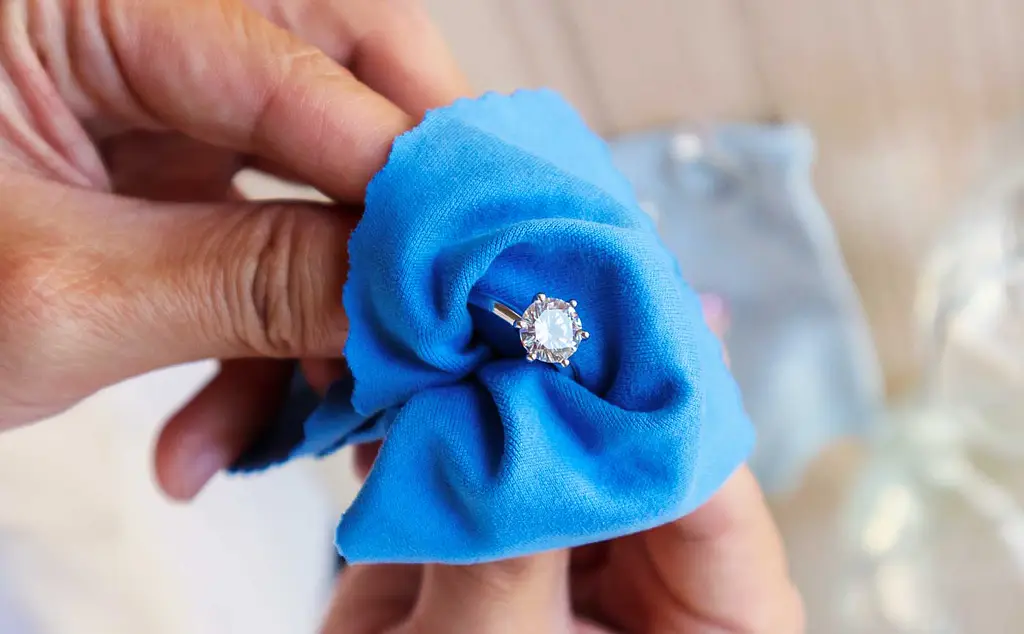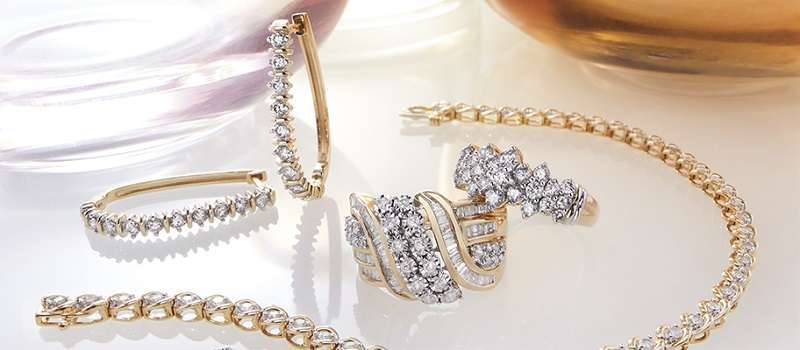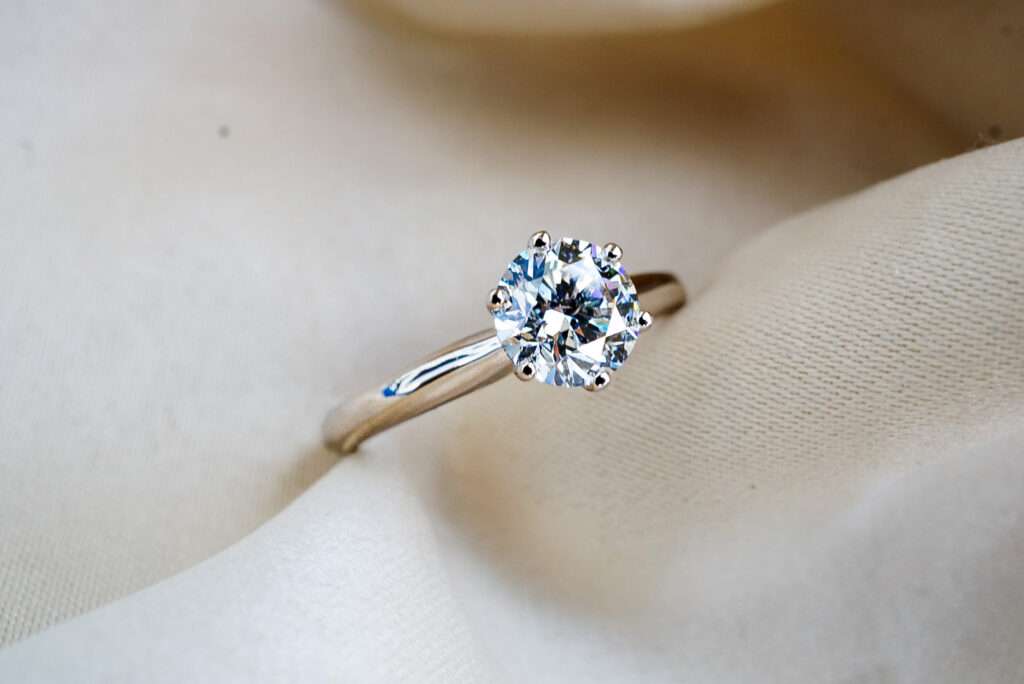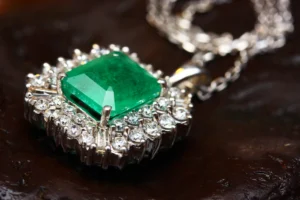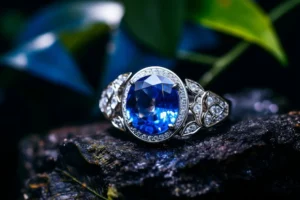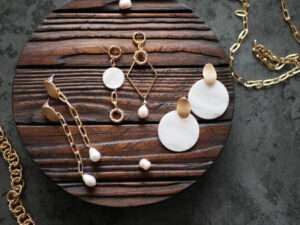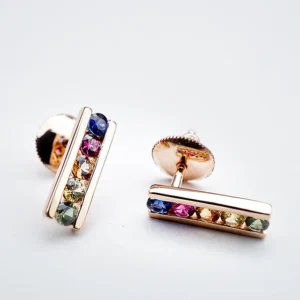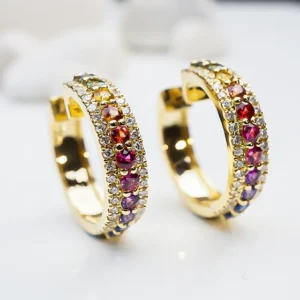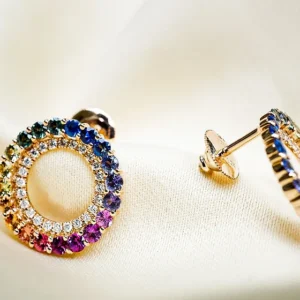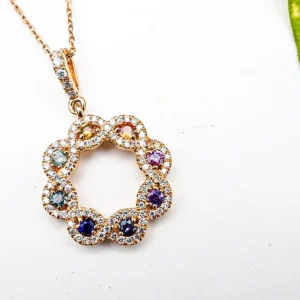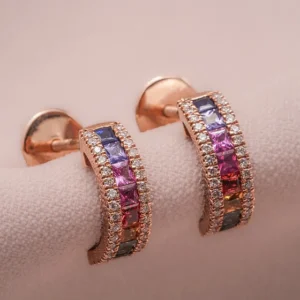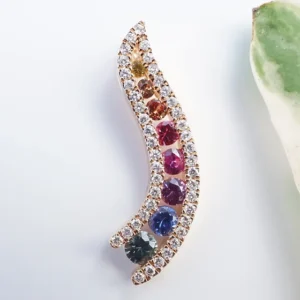Jewelry Care 101: A Comprehensive Guide to Preserving Your Precious Pieces
Jewelry is more than just an accessory; it’s a reflection of your style, sentiment, and sometimes, a significant investment.
Table of Contents
Whether you own heirloom pieces passed down through generations or the latest fashion jewelry, proper care is essential to ensure your jewelry remains radiant and lasts a lifetime.
In this comprehensive guide, we’ll delve into the world of jewelry care, offering detailed insights and tips to keep your jewelry looking its best.
From understanding why jewelry care matters to exploring the specifics of maintaining different types of jewelry, we’ve got you covered.
Why Jewelry Care Matters
1. Preservation of Value
Jewelry, especially pieces crafted from precious metals and adorned with gemstones, often appreciates in value over time.
Proper care ensures that your jewelry maintains its brilliance and appeal, making it a valuable asset that can be passed down to future generations or even sold as an investment.
Neglecting your jewelry’s maintenance can result in a loss of value due to tarnishing, wear, or damage.
2. Sentimental Value
Many pieces of jewelry carry deep emotional significance. An engagement ring symbolizes a lifelong commitment, while a family heirloom connects you to your heritage.
Taking care of these items not only preserves their physical condition but also ensures they remain potent symbols of love, memory, and family traditions.
3. Longevity
Jewelry is designed to last, but it is not invincible. Precious metals like gold and silver can tarnish over time, and gemstones may lose their sparkle.
By implementing proper care practices, you can extend the lifespan of your jewelry, allowing it to be enjoyed for years or even decades to come.
This longevity means that your jewelry can be passed on as a legacy, carrying your stories and history with it.
4. Aesthetic Appeal
One of the most obvious reasons for jewelry care is to maintain its visual appeal. Tarnished or dirty jewelry loses its luster and may not complement your outfit or personality as effectively as when it’s clean and radiant.
Whether you wear your jewelry daily or save it for special occasions, its beauty should always shine through.
5. Prevention of Damage
Jewelry is susceptible to various types of damage, from scratches and dents to loose settings and chipped gemstones.
Regular maintenance and cleaning help you identify and address potential issues before they become irreversible. Simple tasks like checking prongs and settings for security can prevent costly repairs.
6. Historical Significance
Antique or vintage jewelry holds a piece of history within its design and craftsmanship.
Preserving these pieces means safeguarding the past and maintaining their historical and artistic value. Neglecting antique jewelry could result in the loss of an irreplaceable part of our heritage.
Jewelry Set
Caring for Different Types of Jewelry
Now that we understand why jewelry care is vital, let’s explore how to care for various types of jewelry, from precious metals to gemstones and costume jewelry.
Precious Metals: Gold, Silver, Platinum, and More
Gold Jewelry Care
Cleaning and Maintenance: Gold, known for its enduring shine, may still require cleaning to remove dirt, oils, and residues. You can clean gold jewelry at home using a mild detergent and warm water. Gently scrub with a soft brush or cloth, paying extra attention to intricate details. Rinse and pat dry.
Tarnishing Prevention: Pure gold does not tarnish, but lower-carat gold may. To prevent tarnishing, store your gold jewelry in airtight containers or pouches. Avoid exposing it to harsh chemicals, including household cleaning agents.
Silver Jewelry care
Cleaning and Maintenance: Silver is prone to tarnishing due to oxidation. Regularly clean your silver jewelry with a mild silver polish and a soft cloth to remove tarnish. For intricate designs, use a soft brush. Avoid abrasive materials that can scratch the metal.
Tarnishing Prevention: To minimize tarnishing, store silver jewelry in tarnish-resistant bags or anti-tarnish cloth. Keep it away from humidity, sulfur, and harsh chemicals. Wearing your silver pieces frequently can also reduce tarnishing since the oils on your skin can help maintain its shine.
Platinum and Palladium Jewelry Care
Cleaning and Maintenance: Platinum and palladium are renowned for their durability and resistance to tarnishing. Cleaning is relatively simple – soak the jewelry in warm, soapy water and gently scrub with a soft brush. Rinse and pat dry.
Scratch Resistance: While platinum and palladium are durable, they can still develop surface scratches. Over time, these can contribute to a satin-like finish, which some people find appealing. However, if you prefer the original shine, consult a professional jeweler for polishing.
General Tips for Precious Metals:
Avoid exposing precious metal jewelry to harsh chemicals, including chlorine, which can damage or discolor them.
Remove your jewelry when swimming, showering, or engaging in activities that might cause physical damage.
Periodically inspect settings to ensure gemstones remain secure, especially in rings.
Gemstones: Diamonds, Sapphires, Rubies, and More
Diamonds
Cleaning and Maintenance: Diamonds are renowned for their hardness, but they can still accumulate dirt and oils. To clean a diamond, soak it in warm, soapy water and gently scrub with a soft brush. Pay attention to the back of the stone, as this area often collects the most grime. Rinse and pat dry.
Avoid Abrasives: While diamonds are incredibly hard, they can still scratch other diamonds. Avoid storing them in close contact or wearing them during activities that might cause friction.
Emeralds
Cleaning and Maintenance: Emeralds are relatively soft gemstones, making them more susceptible to damage. To clean emerald jewelry, use a mild detergent and warm water. Avoid ultrasonic cleaners, steam cleaning, or harsh chemicals. Gently scrub with a soft brush, rinse, and pat dry.
Treatments and Oiling: Many emeralds are treated with oils to enhance their color and clarity. Over time, this oil may dry out, affecting the gem’s appearance. If you notice a loss of luster, consult a professional jeweler for re-oiling.
Sapphires and Rubies
Cleaning and Maintenance: Sapphires and rubies are durable, but they can accumulate dirt. Clean them in warm, soapy water and gently scrub with a soft brush. Rinse and pat dry. Avoid using abrasive materials that could scratch the surface.
Heat Treatment Considerations: Sapphires and rubies often undergo heat treatment to enhance their color. This treatment is generally stable, but extremely high temperatures can affect the stone. Avoid exposing them to high heat.
Opals
- Cleaning and Maintenance: Opals are delicate and should be cleaned with mild detergent and warm water. Avoid exposing them to harsh chemicals, high heat, or extreme temperature changes, as this can cause cracking.
Pearls
- Cleaning and Maintenance: Pearls are organic gemstones and require special care. Wipe them gently with a soft, damp cloth after each wear to remove body oils and dirt. Avoid exposing them to chemicals, including perfumes and hairsprays.
General Tips for Gemstones:
Avoid exposing gemstone jewelry to harsh chemicals, which can damage or discolor the stones.
Store gemstone jewelry separately to prevent scratches and chipping.
Periodically inspect settings to ensure the stones remain secure, especially in rings.
Costume Jewelry Care
Cleaning and Maintenance: Costume jewelry is often made from various materials, including base metals and non-precious stones. To clean costume jewelry, use a mild detergent and warm water. Gently scrub with a soft brush and rinse. Dry thoroughly.
Tarnishing Prevention: To prevent tarnishing, store costume jewelry in airtight containers or pouches. Avoid exposing it to harsh chemicals, including household cleaning agents.
General Tips for Costume Jewelry Care:
Be gentle while cleaning to avoid damaging non-precious materials.
Inspect the pieces regularly for loose stones and clasps.
Gemstone Diamond Ring
Best Practices for Daily Jewelry Care
Caring for your jewelry is an ongoing process, and incorporating daily care routines into your life can help maintain its beauty. Here are some best practices:
1. Remove Jewelry Before Activities
Whether it’s doing household chores, going to the gym, or swimming, it’s best to remove your jewelry to prevent damage from chemicals, impact, or contact with hard surfaces.
2. Avoid Exposure to Chemicals
Harsh chemicals, such as chlorine and household cleaning agents, can damage both precious metals and gemstones. Remove your jewelry when working with these substances.
3. Store Jewelry Properly
Store your jewelry in individual compartments, pouches, or soft-lined jewelry boxes to prevent tangling, scratching, and damage. Precious metals should be stored separately to avoid tarnishing.
4. Clean Regularly
Gently wipe your jewelry with a soft, damp cloth after wearing it to remove oils and dirt. Periodically clean your jewelry as recommended for its type to maintain its luster.
5. Inspect Settings
Regularly check the settings and clasps of your jewelry to ensure stones are secure and clasps are functioning correctly. Loose stones should be addressed promptly to prevent loss.
Professional Jewelry Cleaning
Sometimes, it’s best to leave the cleaning to the professionals, especially for delicate or intricate pieces. A professional jeweler can thoroughly clean your jewelry and perform any necessary repairs or maintenance.
How to Prevent Jewelry Tarnishing
Tarnishing, often associated with silver and some lower-carat gold, can be prevented by proper storage and care. Here are some tips to prevent tarnishing:
- Use anti-tarnish pouches or cloth to store your jewelry.
- Keep jewelry away from humid environments and extreme temperatures.
- Remove jewelry before applying perfumes, lotions, or hairsprays.
Common Mistakes to Avoid
When caring for your jewelry, it’s essential to be aware of common mistakes to prevent unintentional damage. Here are some mistakes to avoid:
- Using abrasive materials for cleaning.
- Exposing jewelry to harsh chemicals or high heat.
- Storing jewelry in a disorganized manner, leading to tangling and scratching.
DIY Vs. Professional Cleaning
Deciding between DIY cleaning and professional cleaning depends on the type and condition of your jewelry. While DIY methods are suitable for regular maintenance, professional cleaning is advisable for intricate or valuable pieces that require specialized care.
Solitaire Diamond Ring
Eco-Friendly Jewelry Care
For environmentally conscious individuals, eco-friendly jewelry care is a great choice. Use natural and non-toxic cleaning solutions to maintain your jewelry while minimizing your ecological footprint.
Jewelry Care for Antique Jewelry
Antique jewelry requires extra care and consideration. Preserving the historical and aesthetic value of these pieces is essential. Seek advice from professionals who specialize in antique jewelry restoration if needed.
Personalizing Your Jewelry Care Routine
Your jewelry care routine should be tailored to your collection. Consider the type of jewelry you own, how often you wear it, and the conditions in which it’s worn. Create a personalized plan to ensure each piece receives the care it deserves.
Jewelry Care for Special Occasions
Special occasions like weddings and anniversaries often involve wearing precious jewelry. Plan ahead to ensure your jewelry is in perfect condition for these moments. Cleaning and inspection before the event will help you sparkle on your special day.
Conclusion
In conclusion, taking care of your jewelry is an investment in both its appearance and sentimental value. With the right knowledge and regular maintenance, your jewelry can continue to shine for generations. Remember, jewelry care is not just a task; it’s a testament to the love and respect you hold for your cherished pieces.
FAQs About Jewelry Care
Cleaning frequency depends on the type of jewelry and your usage. Precious metals should be cleaned every few weeks, while costume jewelry can be cleaned less often.
Yes, mild detergents and warm water are generally safe for DIY cleaning. Avoid harsh chemicals and abrasives; consult a jeweler for specific recommendations if uncertain.
Use separate compartments, pouches, or jewelry organizers to prevent tangling and protect against scratches.
Avoid wearing jewelry in water, as it can damage metals and gemstones, weaken settings, and cause stones to become loose.
Consider professional cleaning if your jewelry looks dull, heavily tarnished, or if you're unsure about cleaning it yourself. Professional jewelers can clean and restore your jewelry while assessing any issues.

